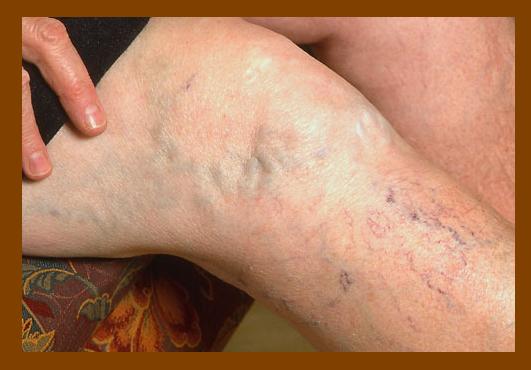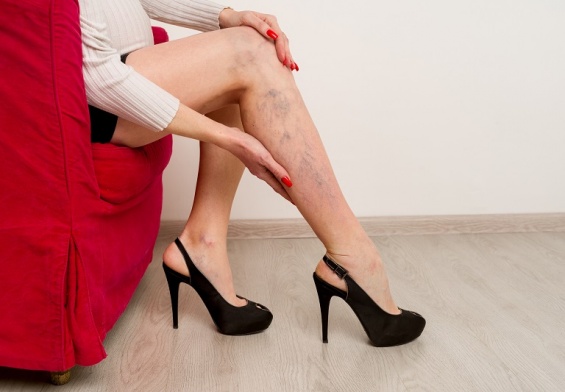You might have noticed varicose veins, those swollen and twisted lines that appear beneath the skin. If you’ve seen them on your legs or ankles, you’re not alone. Sometimes, they’re more than just a cosmetic issue. In some cases, they can cause discomfort and affect your daily life. Knowing the signs early can help you manage them and feel better. Combining alternative medicine near me options with traditional medical care can provide relief.
What Are Varicose Veins?
Your veins play a big role in moving blood back to your heart. This job requires extra effort in your legs, because blood has to travel against gravity. Your veins have small valves that open and close, helping blood move in the right direction. When these valves weaken or don’t work they way they should, blood can collect in the veins. This buildup causes the veins to stretch, twist, and swell—leading to varicose veins.
Varicose veins are more than visible lines on your skin. You might notice them as rope-like, bulging veins in your calves, thighs, or ankles. Some people also develop smaller, web-like veins called spider veins nearby. While they’re related, varicose veins are larger and sit deeper under the skin.
Varicose Vein Risk Factors
Several factors can increase your chances of developing varicose veins. Age is one of the most common reasons, as veins lose strength over time. Family history, pregnancy, hormonal changes, obesity, and extensive standing or sitting are also common risk factors. Healthcare providers usually diagnose varicose veins through a physical exam. Sometimes, they use an ultrasound to check blood flow.
Common Symptoms of Varicose Veins
Varicose veins can show up in different ways. Some symptoms are easy to see, while others affect how your legs feel throughout the day. Here are the most common signs to watch for:
- Visible, bulging veins: These veins often appear twisted, rope-like, and may look blue, purple, or the same color as your skin.
- A heavy or achy feeling in the legs: Many people notice their legs feel tired or weighed down, especially after long periods of standing or sitting.
- Throbbing or burning sensation: Some experience a persistent burning or throbbing in the lower legs.
- Swelling in the legs, ankles, or feet: Fluid can build up around the veins, causing puffiness or tightness.
- Muscle cramps, particularly at night: Cramping in the calves can interrupt sleep and make it harder to get comfortable.
- Itching around the veins: The skin near varicose veins may feel dry, irritated, or itchy.
- Spider veins nearby: Small red or blue lines may appear close to the surface of the skin, often near larger varicose veins.
These symptoms may come and go or get worse over times. Paying attention to them early can help you manage the symptoms and keep them from getting worse.
Advanced or Worsening Symptoms
If left untreated, varicose veins can sometimes lead to more serious health concerns. Here are signs that the condition may be getting worse:
- Persistent swelling in the legs and ankles: Fluid buildup can make moving uncomfortable and may not improve with rest.
- Skin discoloration near the veins: The skin around affected areas may darken or appear brownish.
- Thickened or hardened skin: Long-term vein pressure can cause the skin to become leathery or tight.
- Development of leg ulcers: Open sores, often near the ankles, may form.
- Pain or tenderness in one leg: This could be a sign of a blood clot, particularly if the area feels warm or appears red.
- Bleeding from a vein: In rare cases, the skin over a varicose vein can break open, leading to bleeding that requires medical attention.
Noticing these symptoms early helps you manage the condition before it worsens.
Conventional Treatment Options for Varicose Veins
Before exploring alternative approaches, understand the medical treatments available for varicose veins:
- Compression stockings: Medical-grade compression garments that help improve blood flow
- Sclerotherapy: Injection of a solution that causes veins to collapse and fade
- Laser treatments: Non-invasive procedure using light energy to close smaller veins
- Endovenous procedures: Minimally invasive techniques using heat or adhesives to seal affected veins
- Vein stripping: Surgical removal of problematic veins in severe cases
These medical interventions are important for treating varicose veins. But, many patients find that complementary approaches enhance their comfort and quality of life.
How Alternative Medicine Near Me Can Help With Varicose Veins
Many people find relief by incorporating alternative therapies alongside their doctor’s recommendations. Local holistic vein health practitioners often offer approaches that complement conventional care. When searching for alternative medicine near me for varicose vein support, you’ll discover a variety of options. They’ll help by improving circulation and easing discomfort.
Gentle practices like yoga or tai chi are available at local alternative wellness centers. They can support leg health through movement that enhances circulation. These practices encourage blood flow while strengthening the muscles that support your veins. Many natural health centers near you offer classes and treatments for circulation issues.
Acupuncture is a practice you can find when seeking alternative medicine near me. It’s shown some promise for people with varicose veins. Licensed acupuncturists insert thin needles into specific points believed to improve blood flow and reduce inflammation.
Certain herbal remedies available through local herbal medicine practitioners, are effective for reducing leg swelling. But, it’s vital to consult your healthcare provider before starting any new supplements. They may interact with medications.
Therapeutic massage from qualified bodywork specialists in your area can ease leg tension and improve lymphatic drainage. Many alternative health clinics near me offer specialized lymphatic drainage massage designed for circulatory concerns. Always ensure your massage therapist knows about your condition. Avoid massage on areas with suspected blood clots or active inflammation.
Finding Qualified Alternative Medicine Practitioners Near Me
When searching for “alternative medicine near me” for varicose vein support, consider these important factors:
- Verify credentials and licensing for any practitioner you visit
- Look for specialists with experience treating circulatory conditions
- Read reviews from other patients with similar concerns
- Ask about their approach to working with conventional medical providers
- Confirm they understand the contraindications for varicose veins
The quality of alternative healthcare providers varies, so take the time to research local options. A reputable holistic practitioner will always want you to maintain your relationship with your primary care physician and vascular specialists.
Self-Care Tips to Manage Varicose Vein Symptoms
Besides medical treatments and complementary alternative therapies near you, there are practical steps you can take at home. These self-care habits can make a real difference in your comfort and well-being.
- Elevate your legs: Raise your feet above heart level to encourage blood flow back toward your heart and take pressure off your veins.
- Stay active: Gentle exercises like walking, swimming, or stretching help promote healthy circulation. This prevents blood from pooling in your legs.
- Change positions: If you sit or stand for long periods, try to shift positions or take a short walking break.
- Maintain a healthy weight: Reaching and keeping a healthy weight can reduce pressure on your veins.
- Wear compression stockings: These special socks apply gentle pressure to your legs, so it’s easier for blood to flow back to the heart.
- Take care of your skin: Moisturizing your legs can help prevent itching and irritation. If you notice sores, cracks, or signs of infection, contact your healthcare provider.
When to See a Healthcare Provider
Many people live with varicose veins without serious problems. But, there are times when it’s important to seek medical attention. If your varicose veins cause persistent discomfort, swelling, or skin irritation, talk to your healthcare provider.
You should also schedule a visit if you notice the veins becoming larger, more painful, or if swelling in your legs doesn’t improve with rest. Changes in your skin are another sign to watch for. Discoloration, thickening, or dryness around the veins could mean your circulation is worsening. Itching that doesn’t go away or sores that won’t heal are also reasons to get checked.
In some cases, varicose veins can bleed or develop clots. If you start bleeding from a vein or feel warmth, redness, or tenderness in one leg, contact a healthcare professional right away. Even when exploring local alternative health options, maintain regular appointments with your vascular specialist. This ensures comprehensive care for your vein health.
Varicose Veins and Alternative Medicine FAQs
How do I find reputable alternative medicine near me for varicose veins?
Look for certified practitioners with experience treating circulatory conditions, check online reviews, and ask your doctor. Ensure providers have specific experience with vein conditions and focus on those that work with conventional medical providers.
What questions should I ask when visiting alternative medicine providers near me?
Ask about their experience treating circulatory issues, their certification and training, how they work with conventional medical providers, and what specific techniques they recommend. Also inquire about expected outcomes and duration of treatment.
Can local alternative medicine help with varicose vein symptoms?
While alternative therapies can offer comfort and symptom relief, they should complement, not replace, medical treatment. Yoga, acupuncture, and specialized massage, found through searching “alternative medicine near me,” are common options that may help improve circulation and reduce discomfort.
Can nearby alternative medicine treatments interact with my conventional varicose vein medications?
Yes, some herbal remedies and supplements can interact with blood thinners and other medications prescribed for vein health. Always inform both your conventional doctor and alternative practitioner about all treatments you’re receiving.
Integrating Conventional and Alternative Approaches
We understand that living with varicose veins can be challenging, but you can find relief and improve your quality of life. Exploring alternative medicine near me provides more support options. You can find one that works alongside conventional medical care for a more comprehensive approach to vein health.
The most effective approaches involve open communication between all your healthcare providers.
Resources
https://my.clevelandclinic.org/health/diseases/4722-varicose-veins
https://www.mayoclinic.org/diseases-conditions/varicose-veins/symptoms-causes/syc-20350643



